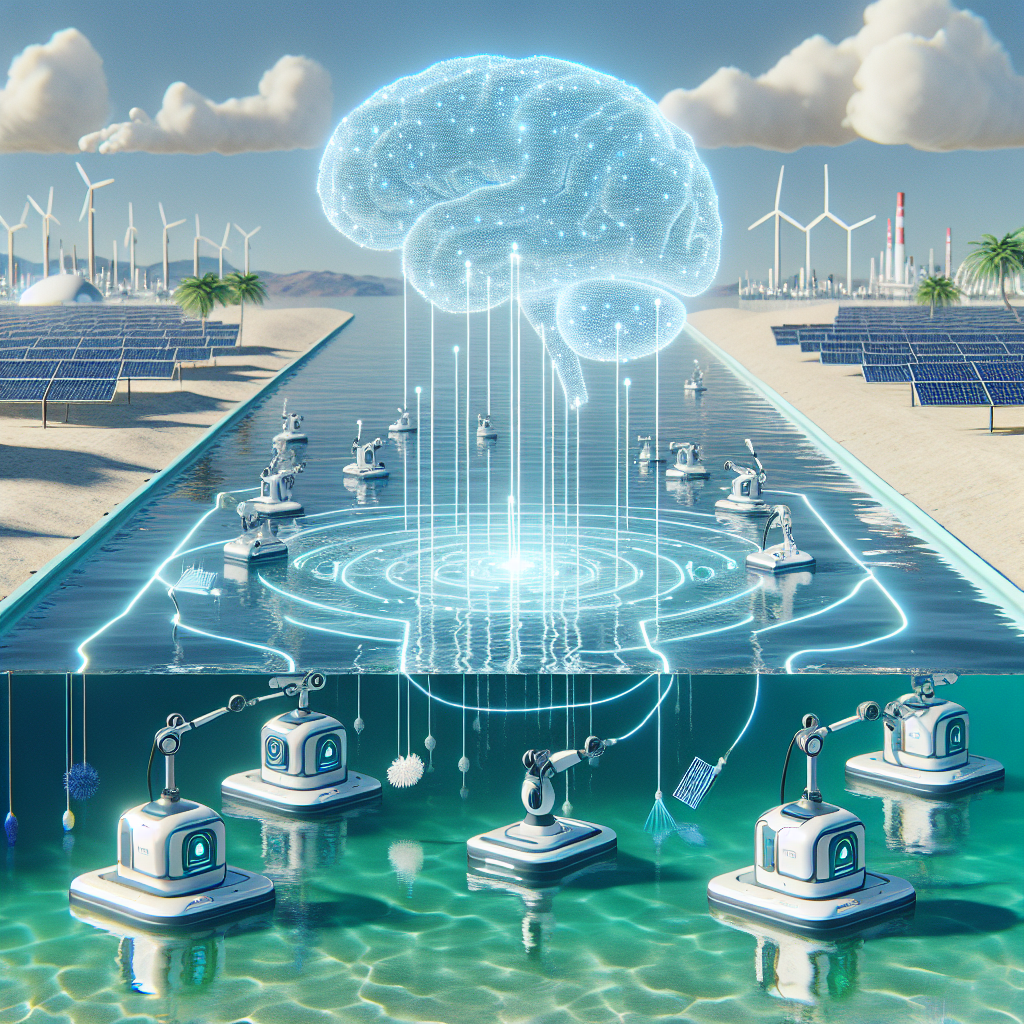In recent years, there has been a growing focus on the importance of sustainable water treatment solutions to address the global water crisis. With the increasing demand for clean and safe water, traditional water treatment methods are proving to be insufficient in meeting the needs of the growing population. This has led to the exploration of innovative technologies, such as artificial intelligence (AI), to revolutionize the way we treat and manage water resources.
AI-driven innovations are transforming the water treatment industry by providing more efficient, cost-effective, and environmentally friendly solutions. These technologies leverage the power of machine learning algorithms to optimize water treatment processes, reduce energy consumption, minimize waste, and improve water quality. In this article, we will explore some of the key AI-driven innovations in sustainable water treatment and their impact on the environment and public health.
1. Smart Water Management Systems:
One of the most significant advancements in sustainable water treatment is the development of smart water management systems powered by AI. These systems use sensors and data analytics to monitor water quality in real-time, detect leaks, predict equipment failures, and optimize water treatment processes. By continuously analyzing data and adjusting treatment parameters, smart water management systems can improve efficiency, reduce operational costs, and ensure the delivery of clean and safe water to consumers.
2. AI-Powered Water Purification Technologies:
AI-driven water purification technologies are revolutionizing the way we remove contaminants from water sources. These technologies use machine learning algorithms to optimize the design and operation of water treatment systems, such as reverse osmosis, nanofiltration, and UV disinfection. By analyzing data on water quality, flow rates, and energy consumption, AI-powered water purification technologies can improve treatment efficiency, reduce chemical usage, and lower operating costs.
3. Predictive Maintenance and Asset Management:
AI-based predictive maintenance and asset management systems are helping water treatment plants to improve equipment reliability, reduce downtime, and extend the lifespan of critical assets. By analyzing historical data and sensor readings, these systems can predict equipment failures before they occur, schedule maintenance activities proactively, and optimize asset performance. This not only reduces maintenance costs but also minimizes the risk of disruptions in water supply.
4. Energy Optimization and Resource Recovery:
AI-driven innovations are also enabling water treatment plants to optimize energy consumption and recover valuable resources from wastewater. By analyzing data on energy usage, process efficiency, and resource recovery potential, AI algorithms can identify opportunities to reduce energy consumption, increase resource recovery, and minimize environmental impact. This not only helps to lower operational costs but also promotes a circular economy by turning wastewater into a valuable resource.
5. Real-Time Water Quality Monitoring:
AI-powered sensors and monitoring systems are revolutionizing water quality monitoring by providing real-time data on water quality parameters, such as pH, turbidity, and dissolved oxygen levels. By continuously monitoring water quality in distribution networks, treatment plants, and storage tanks, these systems can detect contamination events, identify sources of pollution, and ensure compliance with water quality regulations. This proactive approach to water quality monitoring helps to protect public health and prevent waterborne diseases.
FAQs:
Q: How can AI help to improve water treatment efficiency?
A: AI can help to improve water treatment efficiency by optimizing treatment processes, reducing energy consumption, minimizing waste, and enhancing asset performance. By analyzing data on water quality, flow rates, and equipment performance, AI algorithms can identify opportunities to optimize treatment parameters, reduce chemical usage, and improve overall efficiency.
Q: What are the benefits of AI-driven innovations in sustainable water treatment?
A: AI-driven innovations in sustainable water treatment offer several benefits, including improved efficiency, reduced operational costs, enhanced water quality, minimized environmental impact, and better public health protection. These technologies help water treatment plants to operate more effectively, meet regulatory requirements, and ensure the delivery of clean and safe water to consumers.
Q: How can AI help to address the global water crisis?
A: AI can help to address the global water crisis by providing more efficient, cost-effective, and sustainable water treatment solutions. By leveraging the power of machine learning algorithms, AI technologies can optimize water treatment processes, reduce energy consumption, minimize waste, and improve water quality. This can help to ensure the availability of clean and safe water for future generations.
In conclusion, AI-driven innovations are transforming the water treatment industry by providing more efficient, cost-effective, and sustainable solutions to address the global water crisis. By leveraging the power of machine learning algorithms, these technologies are revolutionizing the way we treat and manage water resources, improve efficiency, reduce operational costs, and ensure the delivery of clean and safe water to consumers. With the continued advancement of AI-driven innovations in sustainable water treatment, we can look forward to a future where clean and safe water is accessible to all.

